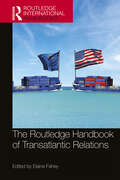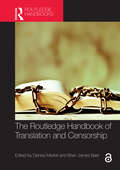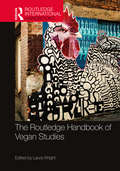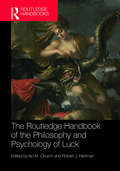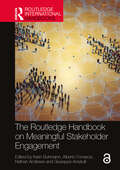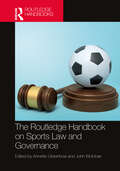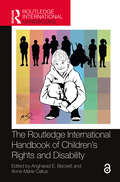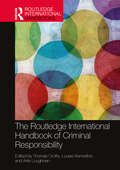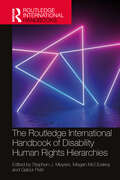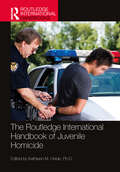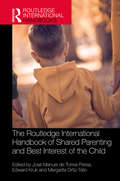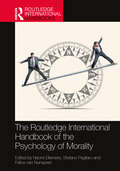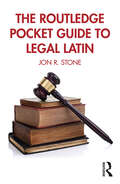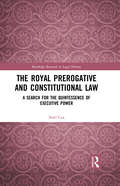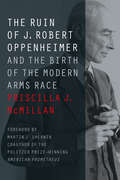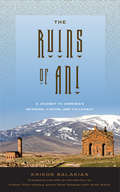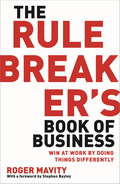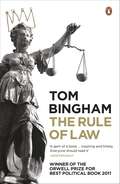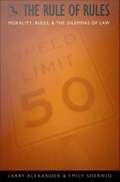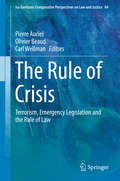- Table View
- List View
The Routledge Handbook of Transatlantic Relations (Routledge International Handbooks)
by Elaine FaheyThe Routledge Handbook on Transatlantic Relations is an essential and comprehensive reference for the regulation of transatlantic relations across a range of subjects, bringing together contributions from scholars, policy makers, lawyers and political scientists. Future oriented in a range of fields, it probes the key technical, procedural and policy issues for the US of dealing with, negotiating, engaging and law-making with the EU, taking a broad interdisciplinary perspective including international relations, politics, political economic and law, EU external relations law and international law and assesses the external consequences of transatlantic relations in a systematic and comprehensive fashion. The transatlantic relationship constitutes one of the most established and far-reaching democratic alliances globally, and which has propelled multilateralism, trade regulation and the EU-US relationship in global challenges. The different contributions will propose solutions to overcome these problems and help us understand the shifting transatlantic agenda in diverse areas from human rights, to trade, and security, and the capacity of the transatlantic relationship to set new international agendas, standards and rules. The Routledge Handbook on Transatlantic Relations will be a key reference for scholars, students and practitioners of Transatlantic Relations/EU-US relations, EU External Relations law, EU rule-making, EU Security law and more broadly to global governance, International law, international political economy and international relations.
The Routledge Handbook of Translation and Censorship (Routledge Handbooks in Translation and Interpreting Studies)
by Brian James Baer Denise MerkleThe Routledge Handbook of Translation and Censorship is the first handbook to provide a comprehensive overview of the topic, offering broad geographic and historical coverage, and extending the political contexts to incorporate colonial and postcolonial viewpoints, as well as pluralistic societies. It examines key cultural texts of all kinds as well as audio-visual translation, comics, drama and videogames.With over 30 chapters, the Handbook highlights commonalities and differences across the various contexts, encouraging comparative approaches to the topic of translation and censorship. Edited and authored by leading figures in the field of Translation Studies, the chapters provide a critical mapping of the current research and suggest future directions.With an introductory chapter by the editors on theorizing censorship, the Handbook is an essential reference and resource for advanced students, scholars and researchers in translation studies, comparative literature and related fields.Chapter 30 of this book is freely available as a downloadable Open Access PDF at http://www.taylorfrancis.com under a Creative Commons Attribution-Non Commercial-No Derivatives (CC BY-NC-ND) 4.0 license.
The Routledge Handbook of Vegan Studies (Routledge International Handbooks)
by Laura WrightThis wide-ranging volume explores the tension between the dietary practice of veganism and the manifestation, construction, and representation of a vegan identity in today’s society. Emerging in the early 21st century, vegan studies is distinct from more familiar conceptions of "animal studies," an umbrella term for a three-pronged field that gained prominence in the late 1990s and early 2000s, consisting of critical animal studies, human animal studies, and posthumanism. While veganism is a consideration of these modes of inquiry, it is a decidedly different entity, an ethical delineator that for many scholars marks a complicated boundary between theoretical pursuit and lived experience. The Routledge Handbook of Vegan Studies is the must-have reference for the important topics, problems, and key debates in the subject area and is the first of its kind. Comprising over 30 chapters by a team of international contributors, this handbook is divided into five parts: History of vegan studies Vegan studies in the disciplines Theoretical intersections Contemporary media entanglements Veganism around the world These sections contextualize veganism beyond its status as a dietary choice, situating veganism within broader social, ethical, legal, theoretical, and artistic discourses. This book will be essential reading for students and researchers of vegan studies, animal studies, and environmental ethics.
The Routledge Handbook of the Philosophy and Psychology of Luck (Routledge Handbooks in Philosophy)
by Ian M. Church Robert J. HartmanLuck permeates our lives, and this raises a number of pressing questions: What is luck? When we attribute luck to people, circumstances, or events, what are we attributing? Do we have any obligations to mitigate the harms done to people who are less fortunate? And to what extent is deserving praise or blame affected by good or bad luck? Although acquiring a true belief by an uneducated guess involves a kind of luck that precludes knowledge, does all luck undermine knowledge? The academic literature has seen growing, interdisciplinary interest in luck, and this volume brings together and explains the most important areas of this research. It consists of 39 newly commissioned chapters, written by an internationally acclaimed team of philosophers and psychologists, for a readership of students and researchers. Its coverage is divided into six sections: I: The History of Luck II: The Nature of Luck III: Moral Luck IV: Epistemic Luck V: The Psychology of Luck VI: Future Research. The chapters cover a wide range of topics, from the problem of moral luck, to anti-luck epistemology, to the relationship between luck attributions and cognitive biases, to meta-questions regarding the nature of luck itself, to a range of other theoretical and empirical questions. By bringing this research together, the Handbook serves as both a touchstone for understanding the relevant issues and a first port of call for future research on luck.
The Routledge Handbook on Extraterritorial Human Rights Obligations (Routledge International Handbooks)
by Mark Gibney Markus Krajewski Wouter Vandenhole Gamze Erdem TürkelliThe Routledge Handbook on Extraterritorial Human Rights Obligations brings international scholarship on transnational human rights obligations into a comprehensive and wide-ranging volume. Each chapter combines a thorough analysis of a particular issue area and provides a forward-looking perspective of how extraterritorial human rights obligations (ETOs) might come to be more fully recognized, outlining shortcomings but also best state practices. It builds insights gained from state practice to identify gaps in the literature and points to future avenues of inquiry. The Handbook is organized into seven thematic parts: conceptualization and theoretical foundations; enforcement; migration and refugee protection; financial assistance and sanctions; finance, investment and trade; peace and security; and environment. Chapters summarize the cutting edge of current knowledge on key topics as leading experts critically reflect on ETOs, and, where appropriate, engage with the Maastricht Principles to critically evaluate their value 10 years after their adoption. The Routledge Handbook on Extraterritorial Human Rights Obligations is an authoritative and essential reference text for scholars and students of human rights and human rights law, and more broadly, of international law and international relations as well as to those working in international economic law, development studies, peace and conflict studies, environmental law and migration.
The Routledge Handbook on Meaningful Stakeholder Engagement (Routledge International Handbooks)
by Nathan Andrews Karin Buhmann Alberto Fonseca Giuseppe AmatulliMeaningful Stakeholder Engagement (MSE) is both a concept and a management approach, drawing on a combination of theoretical and applied knowledge areas (e.g., impact assessment, business and human rights, and stakeholder theory). MSE has become a key element of corporate sustainability risk-based due diligence as a process that responsible business enterprises are expected to apply to identify and manage harmful impacts on the environment and society.Despite the obvious and growing relevance of meaningful stakeholder engagement, few publications have tried to synthesize the knowledge, academic literature, and practical experience within and around the concept and practices. This volume responds to that knowledge gap through the provision of comprehensive interdisciplinary perspectives. Embodying a rights-holder orientation, The Routledge Handbook on Meaningful Stakeholder Engagement emphasizes the importance of MSE for stakeholders who are or can be affected by activities driven by external actors, such as natural resource extraction or processing; infrastructure; development proposals, planning and implementation; and production for industry or consumption.This handbook offers four thematic sections, all interdisciplinary in character, seeking to explore the multiple aspects of MSE. Moreover, a comprehensive introductory chapter explains key elements of the concept and causes for the current surge in expectations of MSE, including a rise in demands of risk-based due diligence. More than 40 international contributors combine theory and practice in chapters that discuss and elaborate the theory and practice of MSE. Uniquely, each section includes short practice notes based on experiences or dilemmas lived by practitioners or affected people, placing real-life situations into theoretical context. The concluding chapter draws up key insights from the chapters and practice notes, and casts a path for the future of MSE integrating values, norms, and practice.Cutting across multiple disciplines including stakeholder theory, natural resource management, impact assessment, project management, ESG, responsible business, and global value chains, The Routledge Handbook on Meaningful Stakeholder Engagement will be an essential resource for scholars, researchers, developers, investors, affected people, civil society organizations, students, and others.The Open Access version of this book, available at http://www.taylorfrancis.com, has been made available under a Creative Commons Attribution-Non Commercial-No Derivatives (CC-BY-NC-ND) 4.0 license.
The Routledge Handbook on Sports Law and Governance
by Annette Greenhow and John WolohanThe Routledge Handbook on Sports Law and Governance provides a definitive guide to the regulation of international and national sport through the lens of both regulatory, governance and legal frameworks.Over the past several decades, law, regulation and governance associated with international and national sport has grown exponentially, aligned with professional and elite level sport development. The organisation and sophistication of international and national sporting competitions create an environment where pressures such as the sports ethic and strong incentives to win give rise to both novel problems and reoccurring themes. Exploring a wide range of perspectives across disciplines and transcending jurisdictional boundaries, the handbook analyses complex international and national sports challenges. Taking a nuanced approach to traditional themes, it recognises the context and sport as a regulatory domain when applying law and legal frameworks.This book is an essential resource for students and academics exploring issues in international and national sports law, sports regulation and sports governance.
The Routledge International Handbook of Children's Rights and Disability (Routledge International Handbooks)
by Angharad E. Beckett Anne-Marie CallusThis handbook provides authoritative and cutting-edge analyses of various aspects of the rights and lives of disabled children around the world. Taking the UN Convention on the Rights of Persons with Disabilities (CRPD) and the UN Convention of the Rights of the Child (CRC) as conceptual frameworks, this work appraises the current state of affairs concerning the rights of disabled children across different stages of childhood, different life domains, and different socio-cultural contexts. The book is divided into four sections: Legislation and Policy Children’s Voice The Life Course in Childhood Life Domains in Childhood Comprised of 37 newly commissioned chapters featuring analyses of UN documents and case studies from Australia, Brazil, Ethiopia, Hong Kong, Italy, the Netherlands, Norway, Papua New Guinea, Serbia, South Africa, Spain, Sweden, the United Kingdom, the United States, and Vanuatu, its multidisciplinary approach reflects the complexities of the lives of disabled children and the multifarious nature of the strategies needed to ensure their rights are upheld. It will be of interest to researchers and students working in disability studies, education, allied health, law, philosophy, play studies, social policy, and the sociology of childhood. It will also be a valuable resource for professionals/practitioners, allowing them to consider future directions for ensuring that disabled children’s rights are realised and their well-being and dignity are assured.
The Routledge International Handbook of Criminal Responsibility (Routledge International Handbooks)
by Thomas Crofts Arlie Loughnan Louise KennefickPresenting cutting-edge research and scholarship, this extensive volume covers everything from abstract theorising about the meanings of responsibility and how we blame, to analysing criminal law and justice responses, and factors that impact individual responsibility.Inviting exchanges across a burgeoning critical scholarship on criminal responsibility, this Handbook showcases the diverse range of methodologies applied to the field, including socio-political approaches, critical historical methods, criminological and sociological perspectives, and interdisciplinary studies bridging law and the mind sciences. Spanning global networks of established and emerging scholars of responsibility for crime, this book explores how we relate to one another as human beings under the spotlight of the criminal law. In doing so, it is hoped that the collection not only does justice to the vibrant landscape of criminal responsibility studies, but inspires new directions and future synergies in this compelling field.The Routledge International Handbook of Criminal Responsibility will appeal to scholars and students of criminal law, criminal justice, criminology, sociology, psychology, neuroscience, philosophy, and socio-legal studies, as well as practitioners and policymakers working in related fields.
The Routledge International Handbook of Disability Human Rights Hierarchies (Routledge International Handbooks)
by Stephen J. Meyers Megan McCloskey Gabor PetriDisability is defined by hierarchy. Regardless of culture or context, persons with disabilities are almost always pushed to the bottom of the social hierarchy. With the advent of the Convention on the Rights of Persons with Disabilities (2006), disability human rights seemingly provided a path forward for tearing down ableist social hierarchies and ensuring that all persons with disabilities everywhere were treated equally. Despite important progress, the disability human rights project not only remains incomplete, but has often created new hierarchies among persons with disabilities themselves or across the human rights it promotes. Certain groups of persons with disabilities have gained new voices while others remain silenced and certain rights are prioritized over others depending on what states, international organizations, or advocates want rather than what those on the ground need most. This volume was inspired both by the continued need to expose human rights violations against persons with disabilities, but to also explore the nuanced role that hierarchies play in the spread, implementation, and protection of disability human rights. The enjoyment of human rights is not equal nor is the recognition of specific individuals and groups’ rights. In order to change this situation, inequalities across the disability human rights movement must be explored. Divided into five parts: Who counts as disabled? Political, social, and cultural context Which rights on top, whose rights on bottom? Pushed to the periphery in the disability rights movement Representations of disability and comprised of 34 newly-written chapters including case-studies from the Anglophone Caribbean, Bangladesh, Bosnia-Herzegovina, China, Ghana, Haiti, Hungary, India, Israel, Kenya, Latin America, Poland, Russia, Scotland, Serbia and South Africa, and other countries, this book will be of interest to all scholars and students of disability studies, sociology, human rights law and social policy.
The Routledge International Handbook of Femicide and Feminicide (Routledge International Handbooks)
by Myrna Dawson Saide Mobayed VegaThis volume explores in depth femicide and feminicide, bringing together our current knowledge on this phenomenon and its prevention.No country is free from femicide/feminicide, which represents the tip of the iceberg in male violence against women and girls. Therefore, it is crucial and timely to better understand how states and their citizens are experiencing and responding to femicide/feminicide globally. Through the work of internationally recognised feminist and grassroots activists, researchers, and academics from around the world, this handbook offers the first in-depth, global examination of the growing social movement to address femicide and feminicide. It includes the current state of knowledge and the prevalence of femicide/feminicide and its characteristics across countries and world regions, as well as the social and legal responses to these killings. The contributions contained here look at the accomplishments of the past four decades, ongoing challenges, and current and future priorities to identify where we need to go from here to prevent femicide/feminicide specifically and male violence against women and girls overall.This transnational, multidisciplinary, cross-sectoral handbook will contribute to research, policy, and practice globally at a time when it is needed the most. It brings a visible, global focus to the growing concern about femicide/feminicide, underscoring the importance of adopting a human rights framework in working towards its prevention, in an increasingly unstable global world for women and girls.
The Routledge International Handbook of Juvenile Homicide (Routledge International Handbooks)
by Kathleen M. HeideThe Routledge International Handbook of Juvenile Homicide is the definitive work on juvenile homicide. This volume provides an up-to-date, comprehensive, and in-depth exploration of what is known about juveniles involved in murder. Taking an interdisciplinary approach to juvenile homicide, this handbook brings together the leading experts in social sciences, mental health, and law from many countries. The volume covers the phenomenon of juvenile homicide from beginning to end, by addressing the questions “why do kids kill?” all the way to “how does society stop them from killing?”. The tough issues involved in sentencing youths who take the lives of others, often deliberately and in horrific ways, are confronted through chapters addressing the legal issues, child development factors, risk assessment, public attitudes, and ethical concerns. The volume brings together research specifically conducted for this volume, in addition to summaries and discussions of clinical and empirical findings. Each chapter ends with key takeaway points. Contributors include psychologists, psychiatrists, criminologists, sociologists, lawyers, economists, biologists, epidemiologists, and public health and public policy experts. Uniquely, they examine murder by juveniles across the globe. The volume includes research pertaining to the causes, correlates, and theoretical explanations of juvenile homicide offending. Moving beyond discussions of juvenile homicide offenders (JHOs) as a homogenous group, the volume includes research on specific types of JHOs and research investigating age and gender differences among JHOs. In addition, it draws attention to the empirical factors associated with juvenile homicide offending, effective treatment of JHOs, recidivism, and prevention of violent behavior. The volume also makes recommendations for policy and practice, including how to shift government policy from punishing lawbreakers to saving lives. This volume is essential reading for scholars and students researching youth violence/juvenile homicide across a variety of disciplines including criminology, criminal justice, law, psychology, psychiatry, sociology, social work, public health, and education. It is also an invaluable reference for mental health professionals, practitioners in the juvenile and criminal justice systems, policymakers, and government leaders.
The Routledge International Handbook of Morality, Cognition, and Emotion in China (Routledge International Handbooks)
by Ryan NicholsThis ground-breaking handbook provides multi-disciplinary insight into Chinese morality, cognition and emotion by collecting in one place a comprehensive collection of essays focused on Chinese morality by world-leading experts from more than a dozen different academic fields of study. Through fifteen substantive chapters, readers are offered a holistic look into the ways morality could be interpreted in China, and a broad range of theoretical perspectives, including ecological, anthropological and cultural neuroscience. Offering a syncretic, multi-disciplinary overview that moves beyond the usual western-oriented perspective of China as a monolithic culture, research questions addressed in this book focus on morality as represented at the level of the individual, rather than at the group or institutional levels. Research questions explored herein include: What are the major contours of distinctively Chinese morality? What was the role of the ancient ecology, climate, and pathogen load in producing Chinese moral attitudes and emotions? Are ingredients of the good life in China different than ingredients of the good life elsewhere? How are children in China morally educated? How do findings from cultural neuroscience help us understand differences in the treatment of family members, or the treatment of strangers, in China and elsewhere? How do the protests in Hong Kong participate in, or stand apart from, the ongoing ethics of protest in historical China? The clear structure and accessible writing offer a rigorous assessment of the ways in which morality can be interpreted, shedding light on differences between China and Western cultures. The book also provides a timely window into Chinese forms of morality, and the pivotal role these play in social organization, family relationships, systems of government, emotion and cognition. Representing fields of study ranging from philosophy, linguistics, archaeology, history, and religion, to social psychology, neuroscience, clinical psychology, developmental psychology, and behavioral ecology, this is an essential text for students, academics, and others with wide interest in Chinese culture.
The Routledge International Handbook of Shared Parenting and Best Interest of the Child
by José ManuelThis multidisciplinary volume offers an essential, comprehensive study of perspectives on the scope and application of the best interests of the child and focuses mainly on its application in relation to child custody. With expert contributions from psychological, sociological and legal perspectives, it offers scientific analysis and debate on whether it should be the primary consideration in deciding child custody cases in cases of divorce or separation or whether it should be one of several primary considerations. It explores complex dilemmas inherent in shared parenting and whether the advantages it offers children are sufficient when compared to attributing custody to one parent and limiting visitation rights of the other. Offering a comprehensive analysis of this complex topic, chapters provide detailed insight into the current state of research in this area, as well as expert guidelines aimed at resolving the controversies when parents agree or disagree over their children’s living arrangements. Cutting-edge topics explored include: transnational shared parenting; alternative dispute resolution; breastfeeding parents; religious disputes between parents and the psychological, social and economic factors that affect shared parenting. The Routledge International Handbook of Shared Parenting and Best Interest of the Child will be essential reading for scholars and graduate students in law, psychology, sociology and economics interested in shared parenting and family law.
The Routledge International Handbook of the Psychology of Morality (Routledge International Handbooks)
by Naomi Ellemers Stefano Pagliaro Félice Van NunspeetThis cutting-edge handbook examines moral psychology and behavior, uncovering layers of human morality through a comprehensive overview of topics and approaches. Featuring an array of expert international contributors, the book addresses five key themes: moral reasoning, moral judgments, moral emotions, moral behavior and moral self-views. Each section includes empirical chapters that address these themes at the intrapersonal, interpersonal, intragroup or intergroup level. Each section starts with a reflective chapter from a leading scholar in this field of study who shares their personal vision on key issues and future developments. Drawing on emerging research and featuring real-world examples, the book offers a deeper understanding of the social psychological factors that shape our moral behavior and how this plays out in our daily lives. The Routledge International Handbook of the Psychology of Morality will be essential reading for academics and students in social psychology, the psychology of morality, business ethics and related areas. It will also be a compelling resource for legal and HR professionals, policy makers and anyone interested in understanding the complex and multi-faceted nature of human morality.
The Routledge Pocket Guide to Legal Latin
by Jon R. StoneThe Routledge Pocket Guide to Legal Latin is an invaluable legal reference tool, providing a quick and informative guide to Latin words and phrases commonly used in legal settings.This useful guide offers readers an extensive collection of over 4700 Latin words and phrases, 500 Latin abbreviations, and hundreds of informative legal maxims, principles, and interesting quotations drawn from the field of law, including terms and legal concepts related to commercial, international, political, personal, and societal as well as property and inheritance laws for which use of the Latin language has remained indispensable. Also included is a helpful pronunciation guide and a miscellaneous section featuring Latin prepositions, particles, common prefixes, Roman numerals, and more. Included at the end of this reference work is an extensive English-Latin index to assist readers in swiftly locating legal words and phrases.Offering quick, accessible definitions and helpful explanations of Latin words and phrases, The Routledge Pocket Guide to Legal Latin is the ideal reference work for professionals across the legal field, including lawyers, judges, and paralegals as well as law students and all interested readers.
The Royal Prerogative and Constitutional Law: A Search for the Quintessence of Executive Power (Routledge Research in Legal History)
by Noel CoxThis book examines the royal prerogative in terms of its theory, history and application today. The work explores the development of the royal prerogative through the evolution of imperial government, and more recent structural changes in the United Kingdom and elsewhere in the Commonwealth. While examining specific prerogative powers, the development of justiciability of the prerogative, and the exercise of the prerogative, it lays bare the heart of constitutionality in the Westminster system of government. There is said to be a black hole of unaccountable authority at the heart of the constitution and it is this which this book examines. The focus is upon the constitutional development of the United Kingdom and the old dominions of Canada, Australia and New Zealand. This approach is comparative and historical, using specific case studies of such events as the dissolution of Parliament and the appointment and dismissal of Prime Ministers. The book will be of interest to academics and researchers working in the areas of Constitutional Law and Politics.
The Ruin of J. Robert Oppenheimer: And the Birth of the Modern Arms Race (Johns Hopkins Nuclear History and Contemporary Affairs)
by Priscilla J. McMillanThis groundbreaking Cold War history reveals the government conspiracy to bring down America’s most famous scientist.On April 12, 1954, the nation was astonished to learn that J. Robert Oppenheimer was facing charges of violating national security. Could the man who led the effort to build the atom bomb really be a traitor? In this riveting book, Priscilla J. McMillan draws on newly declassified U.S. government documents and materials from Russia, as well as in-depth interviews, to expose the conspiracy that destroyed the director of the Manhattan Project.This meticulous narrative recreates the fraught years from 1949 to 1955 when Oppenheimer and a group of liberal scientists tried to head off the cabal of air force officials, anti-Communist politicians, and rival scientists, who were trying to seize control of U.S. policy and build ever more deadly nuclear weapons. Retelling the story of Oppenheimer’s trial, which took place in utmost secrecy, she describes how the government made up its own rules and violated many protections of the rule of law. McMilliam also argues that the effort to discredit Oppenheimer, occurring at the height of the McCarthy era and sanctioned by a misinformed President Eisenhower, was a watershed in the Cold War, poisoning American politics for decades and creating dangers that haunt us today.
The Ruins of Ani: A Journey to Armenia's Medieval Capital and its Legacy
by Peter Balakian Krikor BalakianFrom the tenth to the thirteenth centuries, the city of Ani was the jewel of the Armenian kingdom, renowned far and wide for its magnificent buildings. Known as the city of 1001 churches, Ani was a center for artistic innovation, and its architecture is a potential missing link between Byzantine and Gothic styles. By the fifteenth century, Ani was virtually abandoned, its stunning buildings left to crumble. Yet its ruins have remained a symbol of cultural accomplishment that looms large in the Armenian imagination. The Ruins of Ani is a unique combination of history, art criticism, and travel memoir that takes readers on a thousand-year journey in search of past splendors. Today, Ani is a popular tourist site in Turkey, but the city has been falsified in its presentation by the Turkish government in order to erase Armenian history in the wake of the Armenian Genocide. This timely publication also raises questions about the preservation of major historic monuments in the face of post atrocity campaigns of cultural erasure. Originally written by young priest Krikor Balakian in 1910, just a few years before the Armenian genocide, this book offers a powerful and poignant counterpart to Balakian’s acclaimed genocide memoir Armenian Golgotha. This new translation by the author’s great-nephew, Pulitzer Prize-winning poet Peter Balakian, eloquently renders the book’s vivid descriptions and lyrical prose into English. Including a new introduction that explores Ani’s continued relevance in the twenty-first century, The Ruins of Ani will give readers a new appreciation for this lost city’s status as a pinnacle of both Armenian civilization and human achievement.
The Rule Breaker's Book of Business: Win at work by doing things differently
by Roger MavityIn The Rule Breaker's Book of Business, Roger Mavity provides clear advice and guidance for anybody ambitious about work, yet uncertain of their route to success.The book is devoted to the simple - yet vital - idea that success at work is much more likely to be achieved if we are happy and confident in what we do. But it also believes that fun, and success, at work don't come from slavishly following the rules. On the contrary, it's only by ignoring the conventional wisdom, by breaking a few rules, by daring to use different means, that we have a chance of achieving something remarkable.The short and refreshingly simple chapters are divided into three sections: dealing with money, dealing with the people around you and dealing with yourself. Each chapter identifies a common problem at work and resolves each problem in a clear and approachable way.Chapters include:- Cash is King (and Ace, Queen and Jack) - How to a write a business plan, and a strategy, and is there a difference?- Is there life beyond email?- The art of delegationTo find out more, visit www.rogermavity.com.
The Rule Breaker's Book of Business: Win at work by doing things differently
by Roger MavityIn The Rule Breaker's Book of Business, Roger Mavity provides clear advice and guidance for anybody ambitious about work, yet uncertain of their route to success.The book is devoted to the simple - yet vital - idea that success at work is much more likely to be achieved if we are happy and confident in what we do. But it also believes that fun, and success, at work don't come from slavishly following the rules. On the contrary, it's only by ignoring the conventional wisdom, by breaking a few rules, by daring to use different means, that we have a chance of achieving something remarkable.The short and refreshingly simple chapters are divided into three sections: dealing with money, dealing with the people around you and dealing with yourself. Each chapter identifies a common problem at work and resolves each problem in a clear and approachable way.Chapters include:- Cash is King (and Ace, Queen and Jack) - How to a write a business plan, and a strategy, and is there a difference?- Is there life beyond email?- The art of delegationTo find out more, visit www.rogermavity.com.
The Rule Of Law
by Tom. BinghamIn this brilliant short book, Britain's former senior law lord, and one of the world's most acute legal minds, examines what the idea actually means. He makes clear that the rule of law is not an arid legal doctrine but is the foundation of a fair and just society, is a guarantee of responsible government, is an important contribution to economic growth and offers the best means yet devised for securing peace and co-operation. He briefly examines the historical origins of the rule, and then advances eight conditions which capture its essence as understood in western democracies today. He also discusses the strains imposed on the rule of law by the threat and experience of international terrorism. <P><P>The book will be influential in many different fields and should become a key text for anyone interested in politics, society and the state of our world.
The Rule Of Rules
by Larry Alexander Emily SherwinRules perform a moral function by restating moral principles in concrete terms, so as to reduce the uncertainty, error, and controversy that result when individuals follow their own unconstrained moral judgment. Although reason dictates that we must follow rules to avoid destructive error and controversy, rules--and hence laws--are imperfect, and reason also dictates that we ought not follow them when we believe they produce the wrong result in a particular case. In The Rule of Rules Larry Alexander and Emily Sherwin examine this dilemma. Once the importance of this moral and practical conflict is acknowledged, the authors argue, authoritative rules become the central problems of jurisprudence. The inevitable gap between rules and background morality cannot be bridged, they claim, although many contemporary jurisprudential schools of thought are misguided attempts to do so. Alexander and Sherwin work through this dilemma, which lies at the heart of such ongoing jurisprudential controversies as how judges should reason in deciding cases, what effect should be given to legal precedent, and what status, if any, should be accorded to "legal principles. " In the end, their rigorous discussion sheds light on such topics as the nature of interpretation, the ancient dispute among legal theorists over natural law versus positivism, the obligation to obey law, constitutionalism, and the relation between law and coercion. Those interested in jurisprudence, legal theory, and political philosophy will benefit from the edifying discussion in The Rule of Rules.
The Rule of Crisis: Terrorism, Emergency Legislation And The Rule Of Law (Ius Gentium: Comparative Perspectives on Law and Justice #64)
by Carl Wellman Pierre Auriel Olivier BeaudThis book analyzes emergency legislations formed in response to terrorism. In recognition that different countries, with different legal traditions, have different solutions, it adopts a comparative point of view. The countries profiled include America, France, Israel, Poland, Germany and United Kingdom. The goal is not to offer judgment on one response or the other. Rather, the contributors offer a comprehensive and thoughtful examination of the entire concept. In the process, they draw attention to the inadaptability of traditional legal and philosophical categories in a new and changing political world. The contributors first criticize the idea of these legislations. They then go on to develop different models to respond to these crises. They build a general analytical framework by answering such questions as: What is an emergency legislation? What kinds of emergencies justify laws of this nature? Why is contemporary terrorism such a specific emergency justifying new laws? Using legal and philosophical reflections, this study looks at how we are changing society. Coverage also provides historical experiences of emergency legislations to further illustrate this point. In the end, readers will gain insight into the long-term consequences of these legislations and how they modify the very work of the rule of law.
